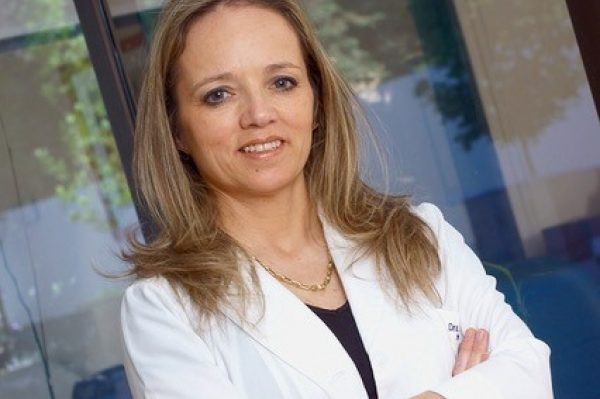By Marlon Madden
Some health professionals are being accused of providing inadequate care to people who are overweight or obese by taking a one-size-fits-all approach to their challenges.
Founder of the Centre for Advanced Metabolic Medicine & Nutrition Dr Ada Cuevas levelled the charge on Tuesday as she urged policymakers and healthcare professionals to play a greater role in efforts to beat the obesity epidemic.
Noting that studies have shown that healthcare workers were quick to tell people who were overweight or obese to exercise more and modify their diets to lose weight, she expressed disappointment that more attention was not being given to helping individuals cope mentally.
“Despite knowing that obesity is a chronic disease, that it is a risk factor for many other diseases and more severe COVID-19, unfortunately, people living with obesity are not receiving quality care from the health care professionals,” Dr Cuevas said.
“You can see [from] studies when a patient asks for help to treat his problem they usually just receive advice to eat less and move more, and this is not a real treatment for everyone. We need to change that. Obesity is a chronic disease but it is not diagnosed, it is not treated by the healthcare professional.
“In addition, people living with obesity are frequently stigmatised and discriminated [against] and all this happens in different environments – in the school, the children with obesity are suffering from a stigma; in the [workplace]; but the most embarrassing for me is that people living with obesity are discriminated and stigmatised by the health care professional. That obviously makes difficult, their diagnosis and treatment,” she added.
Dr Cuevas was speaking during an online seminar to mark the official launch of the publication Obesity: The Other Pandemic of the 21st Century, a book which she co-edited with Professor Emerita at Pennington Biomedical Research Centre, Dr Donna Ryan.
Veronica Vazquez, author of the chapter in the book which addresses stigma in the healthcare system, said it was unfortunate that healthcare professionals were not doing more to help.
“The first thing is to recognise obesity as a disease, because when we do that we stop blaming the people who live with obesity and we start talking with respect with the patients; with curiosity about what is going on with the body; the mental health; the physical health, of course. And if we have those skills to start the conversation about obesity or weight, then we can continue giving evidence-based treatment,” she said.
“We need to be aware of the damage of stigma. Many people say ‘well, it is not a big deal. Sometimes they should feel like that so they can start doing something for their health’, and that type of thing is stigmatising. We [don’t] know the damage we can cause with that being health care professionals,” she warned.
Dr Cuevas added that the fight against the obesity pandemic required a whole-of-society approach, with policymakers, individuals and health professionals taking necessary actions.
“All of us need to do something. For this reason, we wrote this book with a more transversal point of view, involving different aspects – the causes of obesity, obesity in children and in pregnant women, for example. This book is for anybody who wants to learn,” she said.
The book, which has contributions from experts around the world, is available in English and Spanish.
According to the United Nations, experts predict that obesity in adults will increase by about 16.1 per cent by 2025, of which severe obesity will account for about 5.1 per cent. These figures could rise to 17.5 per cent and 5.7 per cent respectively, by the year 2030.
Dr Cuevas argued that one of the biggest challenges facing countries was raising awareness and increasing education, especially among children and pregnant women, about the disease and getting them to make the necessary change in mindset.
“Until now, the future is not looking very well for them [children]. So we need to do something for them now. I think the policies are important regarding the food industry and other aspects,” she said.
Also calling for the issue of obesity to be taken more seriously, Dr Ryan reminded that this disease was “a big contributor” to other non-communicable diseases such as diabetes, heart disease and cancer.
She agreed there was a need for strict policies, adding that things like front-of-package labelling and taxes should be used to discourage the use of sugar-sweetened beverages.
“These measures do work. They reduce the intake of sugar-sweetened beverages. They tend to drive us towards a healthier environment, but we need to do a lot more because the obesity environment is like a tsunami. We need to engage the companies that are making these foods,” Dr Ryan said. marlonmadden@barbadostoday.bb




